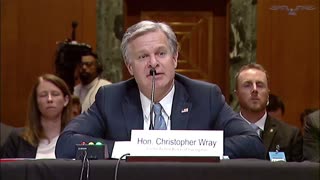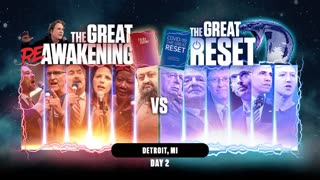United Nations: Security Council on Ukraine | Claims of "Russophobia" - March 15, 2023
Russian Ambassador Vasily Nebenzya (14 Mar) told the Security Council that the principles of Integral Ukrainian Nationalism are based “on the supremacy of the Ukrainian nation over others” and said this was “the reason why Russophobia has become the ideology of an independent Ukraine.”
Nebenzya said “the main principle that they formulated sounds like this, ‘Moskali (ethnic slur for Russian nationals), Hungarians, Poles and Jews are the enemies of the Ukrainian people” and added that “this is the reason why Russophobia has become the ideology of an independent Ukraine and this process has tangibly accelerated after the so-called Orange revolution of 2004, and particularly after the anti-constitutional coup d’état, which happened in 2014.”
The Russian Ambassador, addressing a Security Council debate on the issue of Russophobia, said, “as a result of the anti-constitutional coup d’état in 2014, Ukraine definitively became an anti-Russia and Russophobia was exalted to the status of the state policy. The activists of the Maidan did not hide their misanthropic Russophobic views. And their foreign sponsors were very, very much aware of that fact.”
For his part, Ukraine’s representative Serhii Dvornyk said, “false claims about discrimination of Germans” were used by the Nazis “as a justification for the aggressive expansionism, annexations and atrocities,” leading to Nazi propagandists being tried at Nuremberg.
Dvornyk told the Council that “the Kremlin criminal regime should also find itself in the docks after the military defeat in Ukraine.”
He said, “it will be up to the future tribunal to establish the accountability of all responsible for issuing criminal orders, implementing these orders and whitewashing them for internal and international audiences.
------
Threats to international peace and security - Security Council, 9280th meeting
About the UN Security Council:
Peace and Security
The Security Council has primary responsibility for the maintenance of international peace and security. It has 15 Members, and each Member has one vote. Under the Charter of the United Nations, all Member States are obligated to comply with Council decisions.
The Security Council takes the lead in determining the existence of a threat to the peace or act of aggression. It calls upon the parties to a dispute to settle it by peaceful means and recommends methods of adjustment or terms of settlement. In some cases, the Security Council can resort to imposing sanctions or even authorize the use of force to maintain or restore international peace and security.
-
 2:05:40
2:05:40
R.C. Davis
2 days agoFBI Director Christopher Wray testifies at Senate Appropriations subcommittee - June 4, 2024
137 -
 1:52:46
1:52:46
Game On!
10 hours agoBoston Celtics Can't Win Game 2! | Sports Morning Espresso Shot
1.44K6 -
 LIVE
LIVE
The Amber May Show
3 hours agoReAwaken America Tour Detroit, MI - DAY 2 | Join General Flynn, Eric Trump, Kash Patel, Mayor Giuliani & Team America + Request Tickets for October 18-19 Selma, NC At: TimeToFreeAmerica.com
2,069 watching -
 12:23
12:23
Freakin' Reviews
18 hours agoRice Robot Review: One-Touch Rice Cooker? | As Seen on TV
5.56K19 -
 5:45
5:45
Game Developer
22 hours agoHow To Become A Game Dev (While Working A Full Time Job)
10.2K8 -
 4:16
4:16
ryanhoguepassiveincome
1 day agoElevate Amazon Ads brand content with your Brand Store
12.1K4 -
 16:19
16:19
RealReaper
18 hours agoThe Acolyte Is Unwatchable
11.2K31 -
 11:29
11:29
Ethical Preparedness
13 hours ago2 EASY Ways: Make Insect Bite & Sting Medicine - Medical Prepping for SHTF - Natural Medicine
14.3K3 -
 15:52
15:52
JoBlo Horror Originals
1 day agoThe Watchers Review: Shyamalans Sure Do Love Their Twists
9.87K2 -
 31:49
31:49
MichaelBisping
1 day agoBISPING & ANIK: Is Conor McGregor INJURED?! | Who Could Replace Him? | What's next for Poirier?
13.1K6